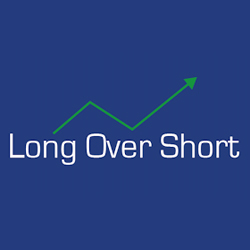Pfizer’s proposed takeover of AstraZeneca is causing lots of questions such as:

1. How can Pfizer guarantee this takeover will not jeopardise Britain’s position in scientific research and development?
2. Is Pfizer doing this primarily to avoid a multimillion dollar tax bill in the US?
3. Does the government have the legal right to intervene?
4. Is the coalition split on how to react to the deal?
Undiscerningly the only question that nobody is asking is ‘will the stock market crash in the next few months?’
Based on historical patterns, the size of the deal and the timing of it, there is a high probability that the stock market will enter a major correction/crash.
Politicians and business leaders do not study the stock market so they can be excused for not asking this pertinent question. For those who study the relationship between stock prices and levels of M&A activity, there is clear correlation between the amount of activity/size of deals being struck and the start of a major correction.
A relentless rise in the stock market similar to the one of the last five years creates an extreme in positive mood. This extreme in sentiment makes investors feel more confident about the future, as a result investors have a tendency to take on more risk in their asset selection during these times. They also tend to pay higher prices for their investments as opposed to lower prices after a long bear market as the psychological effect of extreme bullishness does not wane easily.
It is not surprising therefore that the number of M&A deals and the size of deals being brokered have increased with the rise in the stock market together with positive sentiment. And this is where we sit today. Not a day passes without a mention of a deal, they keep coming and are increasing by the day.
What many investors don’t know is that the more extreme positive sentiment becomes, the higher the risk of a stock market crash. This in turn signifies that the higher the number/size of M&A deals hence the higher the risk of a stock market crash. This statement is true if we refer to the largest M&A deals in history:
1. Vodafone AirTouch’s acquisition of Mannesmann AG for $202.8bn occurred in 1999, just before the bursting of the tech bubble in 2000
2. America Online (AOL)’s acquisition of Time Warner for $164.7bn in 2000 occurred right at the start of the bear market of 2000-2003
3. RBS’ acquisition of ABN-AMRO for $98.5bn in 2007 occurred right at the start of the bear market of 2007-2009
4. Pfizer’s acquisition of Pharmacia Corporation in 2003, valued at $89.2bn occurred in a bull market
5. Exxon Corporation’s acquisition of Mobil Corp in a deal valued at $78.9bn in 1998 occurred less than two years prior to the bursting of the tech bubble in 2000
6. Glaxo Wellcome’s acquisition of SmithKline Beecham in a deal valued at $76bn in 2000 occurred right at the start ofthe bear market of 2000-2003.
As you can see all but one deal occurred prior to a bear market, the only exception was the Pfizer’s acquisition of Pharmacia Corporation which happened early in the bull market of 2003-2007.
The irony is that Pfizer is the company bidding for AstaZeneca in a deal valued at $106bn. Does that mean we should feel safe going forward? Only time will tell but if history is any guide, the risk of a stock market crash in 2014 is higher than ever.
Thierry Laduguie is Trading Strategist at www.bettertrader.co.uk

 Hot Features
Hot Features












